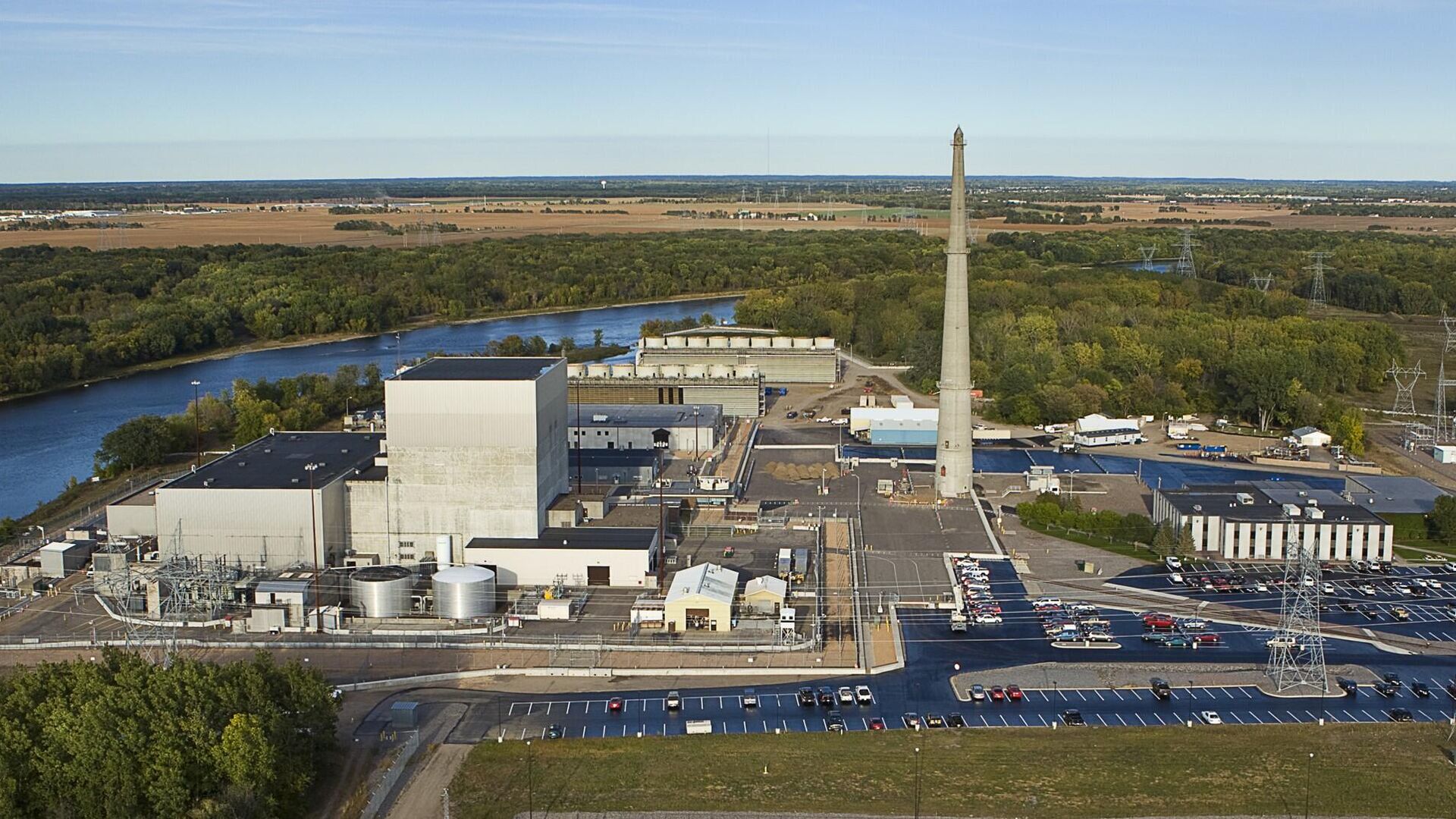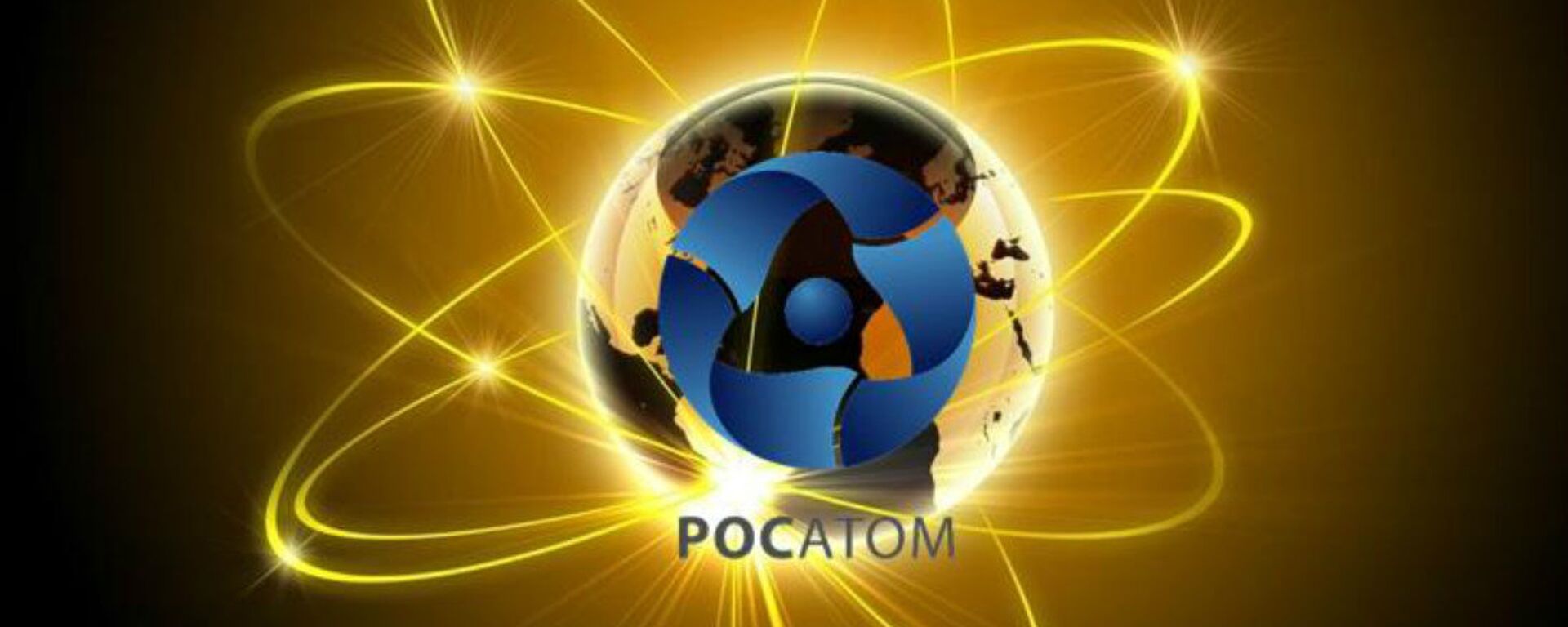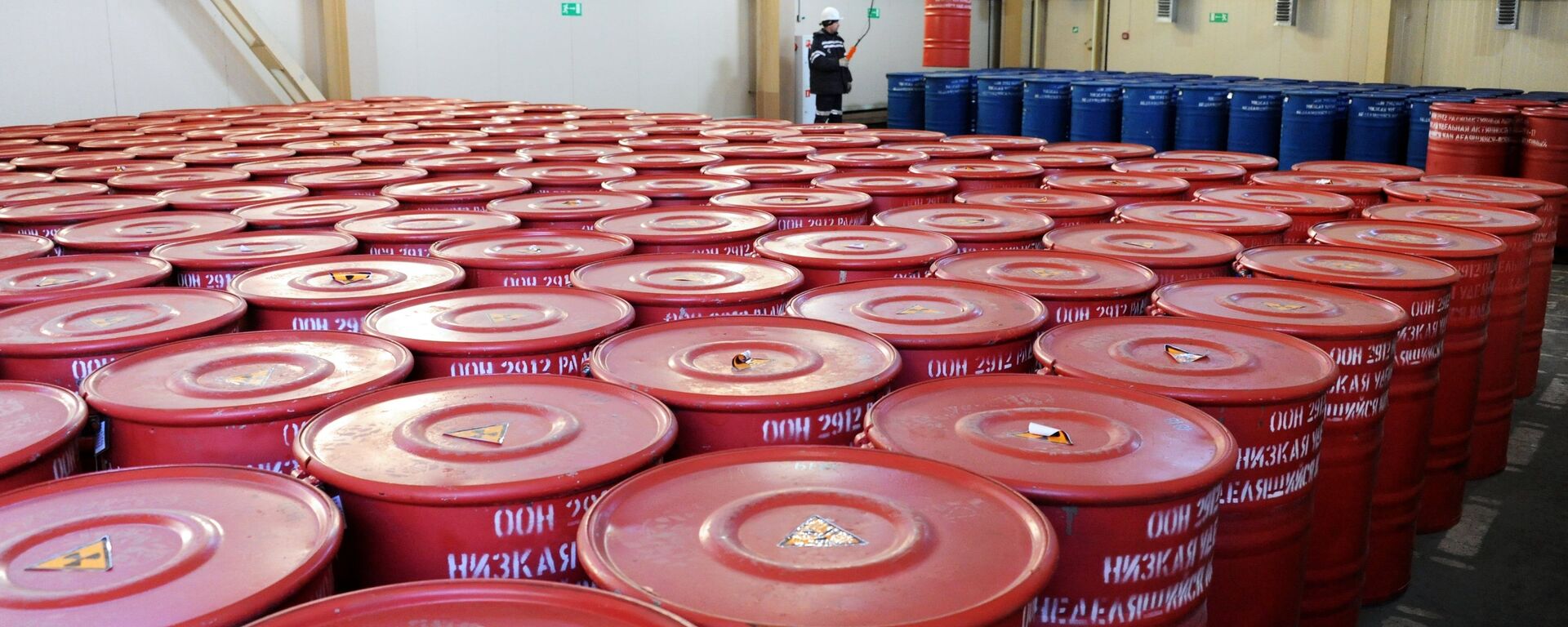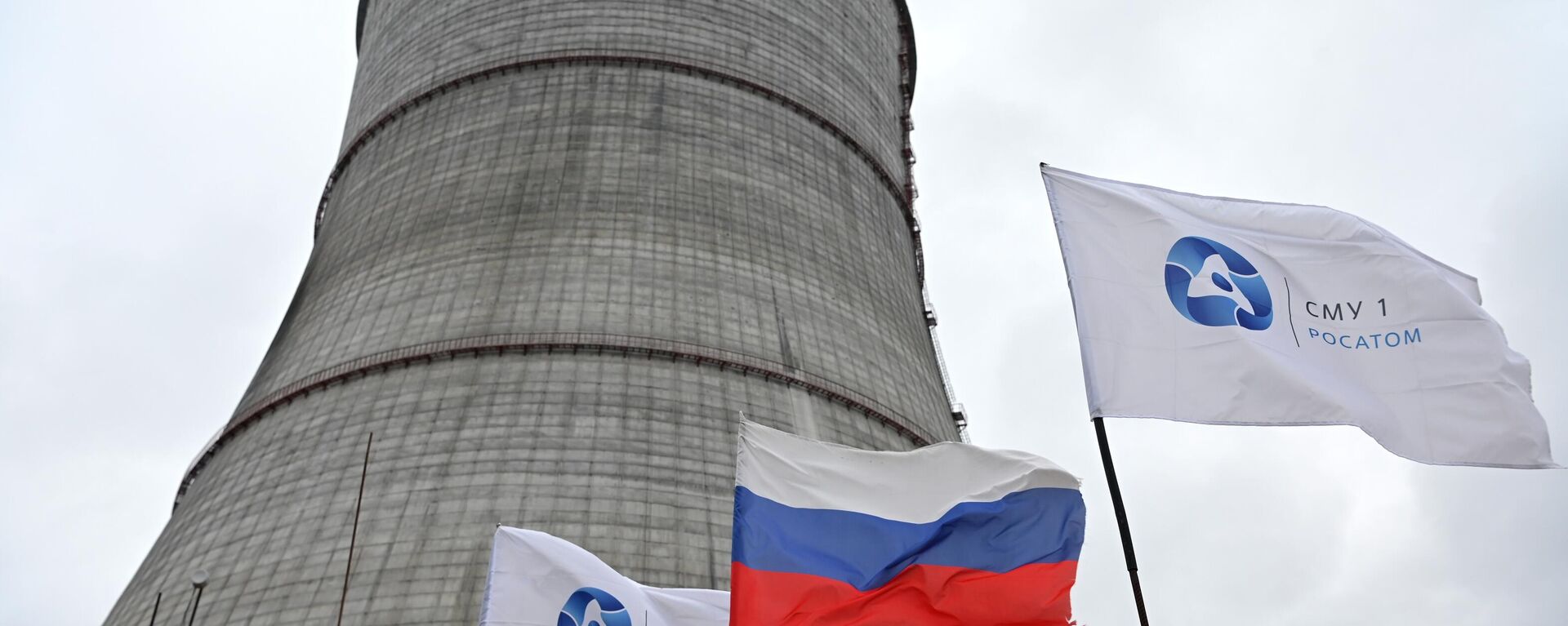https://sputnikglobe.com/20240511/why-russian-uranium-ban-has-given-entire-us-nuclear-industry-the-shivers-1118389908.html
Why Russian Uranium Ban Has Given Entire US Nuclear Industry the Shivers
Why Russian Uranium Ban Has Given Entire US Nuclear Industry the Shivers
Sputnik International
US nuclear fuel company Centrus Energy has expressed concerns about the congressional ban on deliveries of Russian low-enriched uranium, warning about potential challenges for the entire industry.
2024-05-11T18:26+0000
2024-05-11T18:26+0000
2024-05-12T05:24+0000
us
world
joe biden
russia
moscow
ukraine
senate
us department of energy
white house
americans
https://cdn1.img.sputnikglobe.com/img/07e7/03/18/1108765954_76:0:2001:1083_1920x0_80_0_0_2c8c35f6703edb1b87f660d93c7b9fe7.jpg
The legislation banning supplies of Russian low-enriched uranium to the US over Moscow's special military operation in Ukraine was passed by the Senate on April 30 and was sent to the White House on May 8. It will come into force 90 days after US President Joe Biden signs the bill.US nuclear operators and nuclear fuel market participants have expressed concerns over the ban, given that Russia supplies over 20% of the commodity to the US. The bill contains a provision that allows for the granting of waivers through 2027. However, the waiver process details have yet to be unveiled by the US authorities, S&P Global reported on May 10, citing attendees of a meeting held by the US Department of Energy last week.Centrus Energy, which has bought uranium from Russia for years, has signaled it will apply for a waiver at the first opportunity. "Yes, we've been preparing. We're going to make use of this process, and it is extremely important, not only to Centrus, but to the industry here in the US," stated Centrus President, CEO and Director Amir Vexler on May 8."That would mean halting a quarter, or even a third of all American nuclear generation. No one will dare do this because American nuclear reactors produce cheap electricity. And the green transition, which was declared in the United States, also implies the preservation of nuclear energy as a carbon-neutral sector of electricity production," the nuclear energy expert continued.Anpilogov expects that the US will be unable to replace Russia's deliveries of both low-enriched uranium (LEU) and high-assay low-enriched uranium (HALEU) for a long time. Moreover, Tenex, part of Russia's nuclear corporation Rosatom, is the only company that sells HALEU, which is indispensable for advanced nuclear reactors, on a commercial basis.On April 19, President Joe Biden announced that a US plant had managed to produce the first 200 lbs (90 kg) of HALEU and would make nearly a ton of the fuel by the end of 2024. However, it's a drop in the ocean, according to Anpilogov.While US policymakers mulled over additional sanctions on Russia's nuclear sector, the import of Russian enriched uranium to the US surged to a record level of $1.2 billion in 2023, marking a 40% increase compared to the import volume for 2022, according to the Bellona Environmental Foundation.The foundation highlighted that the increase was attributed to both surging prices and increasing physical volumes of Russian nuclear fuel acquired by the US, rising from 588 tons in 2022 to 702 tons in 2023.The Russian scientist emphasized that without the waiver, the US nuclear fuel market may collapse, leading to skyrocketing costs of enriched uranium. He also suggested that US companies might have resorted to "grey schemes" to purchase Russian nuclear fuel, disguising it as contracts with French or other foreign companies.Anpilogov pointed out that the introduction of the waiver alongside the legislation was no coincidence: American lawmakers likely recognized the near impossibility of finding a replacement for Russia in the nuclear fuel market.Anpilogov concluded that the controversy around the Russian nuclear fuel ban underscores the priority of the economy over political ambitions.
https://sputnikglobe.com/20240422/g7-could-take-10-years-to-catch-up-with-russian-nuclear-fuel-output-1118063075.html
https://sputnikglobe.com/20240420/catch-235-if-west-bans-russian-nuclear-fuel-no-one-will-suffer-except-itself-1118031030.html
https://sputnikglobe.com/20240510/europe-might-see-nuclear-reactor-breakdowns-after-sanctioning-russian-fuel-1118377467.html
russia
moscow
ukraine
Sputnik International
feedback@sputniknews.com
+74956456601
MIA „Rossiya Segodnya“
2024
News
en_EN
Sputnik International
feedback@sputniknews.com
+74956456601
MIA „Rossiya Segodnya“
Sputnik International
feedback@sputniknews.com
+74956456601
MIA „Rossiya Segodnya“
russian uranium ban, us banned russian enriched uranium, russian uranium ban will grant waivers through 2027, centrus energy stated it will apply for waiver to buy russian enriched uranium, low enriched uranium, rosatom, tenex
russian uranium ban, us banned russian enriched uranium, russian uranium ban will grant waivers through 2027, centrus energy stated it will apply for waiver to buy russian enriched uranium, low enriched uranium, rosatom, tenex
Why Russian Uranium Ban Has Given Entire US Nuclear Industry the Shivers
US nuclear fuel company Centrus Energy has expressed concerns about the congressional ban on deliveries of Russian low-enriched uranium, warning about potential challenges for the entire industry.
The legislation
banning supplies of Russian low-enriched uranium to the US over Moscow's special military operation in Ukraine was passed by the Senate on April 30 and was sent to the White House on May 8. It will come into force 90 days after US President Joe Biden signs the bill.
US nuclear operators and nuclear fuel market participants have expressed concerns over the ban, given that Russia supplies over 20% of the commodity to the US. The bill contains a provision that allows for the granting of waivers through 2027. However, the waiver process details have yet to be unveiled by the US authorities, S&P Global reported on May 10, citing attendees of a meeting held by the US Department of Energy last week.
Centrus Energy, which has bought uranium from Russia for years, has signaled
it will apply for a waiver at the first opportunity.
"Yes, we've been preparing. We're going to make use of this process, and it is extremely important, not only to Centrus, but to the industry here in the US," stated Centrus President, CEO and Director Amir Vexler on May 8.
"Presently, Russian uranium accounts for 20 to 25 percent of the American nuclear fuel market. It is virtually impossible to suddenly abandon such a supplier," Alexey Anpilogov, a political scientist and expert in the field of nuclear energy, told Sputnik.
"That would mean halting a quarter, or even a third of all American nuclear generation. No one will dare do this because American nuclear reactors produce cheap electricity. And the green transition, which was declared in the United States, also implies the preservation of nuclear energy as a carbon-neutral sector of electricity production," the nuclear energy expert continued.
Anpilogov expects that the US will be unable to replace Russia's deliveries of both low-enriched uranium (LEU) and high-assay low-enriched uranium (HALEU) for a long time. Moreover, Tenex, part of Russia's nuclear corporation Rosatom, is
the only company that sells HALEU, which is
indispensable for advanced nuclear reactors, on a commercial basis.
On April 19, President Joe Biden announced that a US plant had managed to produce the first 200 lbs (90 kg) of HALEU and would make nearly a ton of the fuel by the end of 2024. However, it's a drop in the ocean, according to Anpilogov.
While US policymakers mulled over additional sanctions on Russia's nuclear sector, the import of Russian enriched uranium to the US surged to a record level of $1.2 billion in 2023, marking a 40% increase compared to the import volume for 2022,
according to the Bellona Environmental Foundation.
The foundation highlighted that the increase was attributed to both surging prices and increasing physical volumes of Russian nuclear fuel acquired by the US, rising from 588 tons in 2022 to 702 tons in 2023.
The Russian scientist emphasized that without the waiver, the US nuclear fuel market may collapse, leading to skyrocketing costs of enriched uranium. He also suggested that US companies might have resorted to "grey schemes" to purchase Russian nuclear fuel, disguising it as contracts with French or other foreign companies.
Anpilogov pointed out that the introduction of the waiver alongside the legislation was no coincidence: American lawmakers likely recognized the near impossibility of finding a replacement for Russia in the nuclear fuel market.
"It is impossible to abolish the economy, it is impossible to abolish the international division of labor," the scientist said. "Back in the 1980s, the Americans de facto destroyed their enrichment industry, because it was ineffective being based on old gas-diffuse technologies. For 30 years they had bought relatively inexpensive Russian uranium. A cornerstone of America's nuclear energy generation couldn't be abandoned through a simple vote in Congress."
Anpilogov concluded that the controversy around the Russian nuclear fuel ban underscores the priority of the economy over political ambitions.





